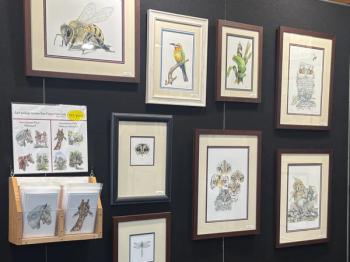
Veterinary institutions study E. coli O157:H7
At the same time, Tufts researchers have designed a treatment.
NATIONAL REPORT — Veterinary institutions are taking on Escherichia coli O157:H7, known by experts as the most virulent strain of the bacteria.
The news comes as the nation reacts to deaths and illnesses that stem from E. coli O157:H7-laden bagged spinach. Government officials conclude the greens were tainted by cattle waste, but how the bacteria spread to the fields remains unknown.
To help crack the mystery, University of California-Davis School of Veterinary Medicine (UC-Davis) scientists are scouring E. coli O157:H7 sources in the Salinas Valley. There, they plan to collect data for a four-year study, $1.2-million study funded by the United States Department of Agriculture.
"Exactly where the E. coli is coming from is a focus of the grant," says Dr. Edward Atwill, a UC-Davis veterinary school specialist in waterborne infectious diseases and co-principal investigator of the study. "There has been much speculation that livestock or wildlife are possible sources of the E. coli O157:H7 in these outbreaks in fresh produce from Salinas Valley region. We will examine livestock and wildlife that are out on the range land up above the farmland, and wildlife that live near canals and on the periphery of vegetable fields on the valley floor."
Therapy, prevention
At the same time, researchers at Tuft University's Cummings School of Veterinary Medicine have developed a treatment designed for use in the early onset of illnesses caused by E. coli O157:H7 while University of Nebraska (UN) scientists work on a cattle vaccine.
The Tufts therapy targets the toxin in E. coli and involves human antibodies, which might lead to the creation of a list of antibiotics safe for E. coli infection treatment, researchers say.
In preclinical trials, the antibodies were administered to pigs infected with E. coli after the onset of diarrhea. The treatment prevented systemic kidney and brain damage, school officials say. The treatment is being produced for clinical trials in humans, officials add.
The UN vaccine is designed to combat E. coli's source and reduce the bacteria. Clinical trials, which began in 2002, show the vaccine decreases the number of animals with E. coli bacteria in their manure by up to 70 percent, researchers say.
Newsletter
From exam room tips to practice management insights, get trusted veterinary news delivered straight to your inbox—subscribe to dvm360.





